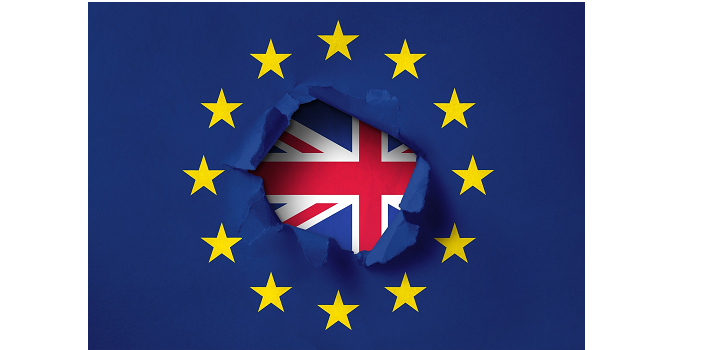
by Clair Mooney | Feb 15, 2019 | Main News Feed
This week’s EU Exit and Trade update from the BEIS Infrastructure and Materials team covers no-deal immigration arrangements for EEA nationals; simplified import customs procedures; the launch of the UK Mark to replace CE marking; an update on road freight and a reminder on data protection.
UK’s immigration arrangement for EEA nationals in a no-deal situation
On 28 January, the Home Secretary announced the plans for no-deal post exit migration and movement arrangements, including ‘European Temporary Leave to Remain’. This will apply to people arriving in the UK after 29 March in a no-deal scenario, not to those already here at that date. For EEA nationals already in the UK at that point, please refer to guidance on the Settlement Scheme. For proposals for the Immigration System post-2021, please look here.
A summary of the key facts:
- EEA citizens will be able to enter and leave the UK as they do now to visit, study and work (staying up to 3 months);
- the initial 3 months’ leave to enter for EEA citizens will be free of charge but applications for European Temporary Leave to Remain will be paid for. Fees will be set out at a later date;
- EEA citizens arriving in the UK who wish to stay longer than 3 months can apply for European Temporary Leave to Remain- they will be subject to identity, criminality and security checks before being granted permission to stay for three years;
- non-EEA family members who wish to accompany an EEA citizen under these arrangements will need to apply in advance for a family permit;
- Irish citizens will not need to apply for European Temporary Leave to Remain and will continue to have the right to enter and live in the UK under the Common Travel Area;
- European Temporary Leave to Remain does not give rights forthe EU Settlement Scheme mentioned above.
Guidance is available here and in the accompanying factsheet.
Simplified import customs procedures for no-deal
HMRC has announced that businesses will be able to use simplified customs declarations and postpone payment of duties under a Transitional Simplified Procedures (TSP) scheme if there is a no-deal Brexit (but there will still be additional information needed for controlled goods). The measures will apply to most businesses importing from the EU at roll-on-roll-off-ports. The measures would come into place from 29 March and be reviewed after 3 to 6 months. Businesses will be given 12 months’ notice if they are to be withdrawn. These transitional simplified procedures reduce the amount of information you need to give up front in an import declaration when the goods are crossing the border and also by deferring the payment of duty.
There are four key actions for traders:
- Register for Economic Operator Registration and Identification (EORI) number if you haven’t done so already at www.gov.uk/hmrc/get-eori.
- Check the guidance to see if you qualify and check which ports TSP applies to: www.gov.uk/hmrc/eu-simple-importing
- If it will work for you, sign up for TSP online.
- If tariffs apply to the goods that you import and you want to use TSP you will need to apply to defer any duties payable (HMRC will provide further details on this very soon) and have a financial guarantee by 30 June 2019 for any duties deferred
If you’re exporting, register for the National Export System at https://www.gov.uk/guidance/export-declarations-and-the-national-export-system-export-procedures
Non-VAT registered businesses should also go to www.gov.uk/hmrc/trade-with-the-eu for changes that affect them.
Prepare to use the UK Mark
On 2 February the Government published the design for the UK marking that will need to be affixed to certain products sold in the UK in the event we leave the EU without a deal. This would replace the CE marking. The CE marking is placed on specific products to show that they are compliant with the relevant EU regulatory requirements. In most cases the CE marking can be applied to products tested by the manufacturer. For some products, there is a legal requirement for the product to be assessed by a third-party assessment body (usually a ‘Notified Body’) to confirm they meet relevant the requirements. In a ‘no deal’ scenario, the EU will stop recognising the competency of UK-based Notified Bodies to assess products for the EU market.
Maintaining Access to the UK Market: The Government intends to reclassify UK Notified Bodies as UK Approved Bodies. These bodies will be eligible to assess products against relevant UK requirements and issue the new UK marking to compliant products to be sold on the domestic market. In most cases, manufacturers would not need to use the UK marking immediately in the event of the UK exiting the EU without a deal. Instead, manufacturers will be able, for a period of time, to continue to use the CE marking when placing their products on the UK market if their product meets the relevant EU requirements. This would include products that have had any necessary third-party assessment carried out by an EU-recognised body. The Government would consult businesses before taking a decision on when this period would end. However, for products subject to conformity assessment by a UK Approved Body, manufacturers will be required to affix a ‘UK Mark’ to the product to demonstrate compliance with requirement. To check whether you will need to use the UKCA marking please read the guidance on trading goods regulated under the ‘New Approach’ if there’s no Brexit deal.
Maintaining Access to the EU Market: Products being exported to the EU that currently require the CE marking will continue to require the CE marking to demonstrate compliance with the relevant EU requirements. UK manufacturers placing products on the EU market that require the CE marking will need to get their products assessed and marked by an EU recognised conformity assessment body or could arrange for assessments to be transferred to an EU recognised body before the UK leaves the EU.
Guidance on the use of the UK marking can be found here.
Road freight update
The Government will continue to license UK hauliers to the same high safety, environmental and operating standards as at present, and will require foreign hauliers operating in this country to do the same. Legislation about to be put forward by the Department for Transport will provide for continued access to the UK market for hauliers from the 27 EU member states in a no deal scenario. Over 80% of haulage between the UK and continental Europe is undertaken by EU hauliers.
On its side, the European Commission has proposed legislation that would allow UK hauliers basic rights to conduct operations to, from and through the EU for a limited period of nine months after exit, if there is no deal. The Commission’s proposal will need to be agreed by the European Council and European Parliament, and is being considered by both institutions urgently. This proposal is predicated on the UK granting equivalent access for EU hauliers here and the legislation mentioned above provides for that access. Depending on the outcome of these discussions, we will review the UK’s offer to EU hauliers.
The Government does not expect and has never intended to rely solely onEuropean Conference of Ministers of Transport (ECMT) permits for UK hauliers after we leave the EU.
On 25 January, The UK signed an agreement with Switzerland on the international carriage of passengers and goods by road. The agreement will ensure UK hauliers and commercial bus drivers can continue to drive to, from and through, Switzerland after the UK leaves the EU, as they do now. Further information can be found here.
Data protection
In the event that the UK leaves the EU on 29 March 2019 without a deal, UK businesses will need to ensure they continue to be compliant with data protection law. For UK businesses that operate internationally or exchange personal data with partners in other countries there may be changes that need to be made ahead of the UK leaving the EU to ensure minimal risk of disruption. For those that would be affected, early action is advised as changes may take some time to implement.
How personal data currently moves across the border
- Personal data is protected by the GDPR. This gives individuals rights over their data: to know who has it, to correct it, to delete it, to move it. Etc.
- The GDPR says that data can only be moved across borders if equivalent protections exist in the country where the data is going.
- At present personal data can cross borders as follows:
-
- Where it remains in the EU (because all EU countries must apply GDPR)
- Plus EEA states: Norway, Iceland, Lichtenstein, and other UK territories like Gibraltar.
- Countries where the EU Commission has determined there are adequate protections: Andorra, Argentina, Canada (commercial organisations), Faroe Islands, Guernsey, Israel, Isle of Man, Jersey, New Zealand, Switzerland, Uruguay and the United States of America (limited to the Privacy Shield framework) as providing adequate protection.
- If none of the above apply, such as when we send personal data to India, or Australia, then the data can only be sent where there are “standard contractual clauses” (SCC) or “binding corporate rules” (BCR).
- SCC and BCR essentially extend the GDPR rights to data moved to a third country jurisdiction.
- To note: SCC only covers certain data transfer relationships and BCR only cover data transfer within a single company.
What do businesses need to do?
They need to understand their data flows. Do they have affected cross-border personal data flows? Have they put in place Standard Contractual Clauses or Binding Corporate Rules?
The government published advice for business in September 2018:
https://www.gov.uk/government/publications/data-protection-if-theres-no-brexit-deal
The ICO (information Commissioner’s Office) provides some useful information:
ICO advice – good starter document with some links to more info
ICO Leaving the EU Six Steps – A breakdown of steps to take to prepare for EU exit
ICO tool for working out if SCC will work for you

by Clair Mooney | Feb 15, 2019 | Main News Feed
We have seen further flurries of activity from the Civil Service this week as the likelihood of a No Deal increases. In terms of your planning, we are keeping the Brexit checklist up to date and recommend a focus on helping your team to understand the implication of Settled Status (applicable to those from the EU27 who arrived before March 29th). We also had an update this week on the European Temporary Leave to Remain, which will apply to those arriving after 29 March. This has been absorbed now into the checklist. You may already have seen the interesting report from Ranstaad that analyses the current mood of EU27 workers, the stat that jumps out is 1 in 5 are undecided as to whether they’ll stay or leave 81% wouldn’t consider leaving until after 29 March. More here.
The impact of delay clauses was also discussed at a BuildUK meeting this week and remains a concern. We continue to put pressure on Government to ensure that these are not applied through any public sector works and on the wider client audience to be reasonable about how they are imposed, but some legal wrangling may still apply. Remember FIS has a legal helpline that you can use. Do feel free to fire in any questions, concerns or comments to us and we will seek to build the answers into our ongoing work.
You can access the FIS Checklist here.

by Clair Mooney | Feb 14, 2019 | Main News Feed
After Brexit on 29 March 2019, UK businesses that manufacture or import chemicals from the EU will have to register those chemicals to the new UK regulatory system – UK REACH – using its associated UK REACH IT system. In support of this new registration system DEFRA has been inviting individual businesses to participate in their Model Office testing programme for the new UK REACH IT system and now wish to extend this an invitation to the FIS membership.
Full details from DEFRA are below including the dates for the testing programme, together with important relevant information concerning the version of IUCLID to be used. If you are wishing to participate please email jessica.durkota@environment-agency.gov.uk or for further information contact REACH-IT@defra.gov.uk
UK REACH IT testing – Invitation to participate
The Model Office will be hosted at Alpha Tower, Birmingham, B1 1TT. We ask that you attend for one day of testing (09:30 arrival for a 10:00 start with wrap-up to complete by 16:00). Although we cannot provide remuneration for travel or subsistence, we will be providing refreshments and lunch on the day. The testing can only be conducted at the Model Office site as this will enable the concurrent testing of all processes from a system user and administrator perspective.
So the testing is as realistic as possible, we ask participants to bring:
• Your own laptops for access to your company email and a web browser (secure internet access is available by Wi-Fi)
• Copies of your REACH information. Any REACH dossiers for the Model Office are required in IUCLID v6.3, please inform us if your dossiers are in an older version of IUCLID as we can provide support in converting these to a more recent version.
The testing will be run on the dates below, please choose a date that is most suitable and let us know by responding to the address below:
Monday 25 February
Tuesday 26 February
Wednesday 27 February
Thursday 28 February
Friday 1 March
Monday 4 March
Tuesday 5 March
Wednesday 6 March
Thursday 7 March
Friday 8 March
We will be providing participants with a full welcome pack and joining instructions prior to the day. If you have any further queries please contact REACH-IT@defra.gov.uk

by Clair Mooney | Feb 14, 2019 | Main News Feed
Members need to prepare themselves for the upcoming reverse charge VAT. This will see VAT being paid between construction firms ‘reversed charged’ which will have consequences for your cashflow and accounting systems.
The first public guidance has now been released and is available at https://www.gov.uk/government/publications/vat-reverse-charge-for-building-and-construction-services-guidance-note/guidance-note We urge all members to download a copy and take the time to read it. There will be lots more literature including example letters for subcontractors and example invoices as we approach the start date. Companies must not start reverse charging before the start date.
Reverse charge VAT will involve some decision making before an invoice is sent to a customer based on the nature of the work done and accounts departments will need to know whether the customer is VAT registered and whether the customer is CIS registered.
JTC has created a flow chart, which is similar to what members will use daily after October 2019.
Think about collecting your customers VAT registration numbers and CIS UTR now for projects that will run over into autumn 2019. There will be far more guidance and help as we get closer to the start – just think and be aware that change is happening.

by Clair Mooney | Feb 14, 2019 | Main News Feed
Confused by HMRC’s Making Tax Digital (MTD)?
Liz Bridge at the Joint Taxation Committee has prepared an index and timeline to help you understand what Making Tax Digital really means, how it will affect you, quarterly reporting and any exemption rules. Find out more here in the latest edition of JTC Newsline.

by Clair Mooney | Feb 14, 2019 | Main News Feed
Following the construction industry Brexit Contingency Planning Conference, the agreed actions covered were;
- The construction workforce, including skills and migration
- The import and export of goods
- The future regulatory regime and demonstrating compliance with this
- Communicating with Government regarding the key concerns of the industry about a no deal Brexit.
- In addition, it was also identified that some firms may need to take action to comply with data protection rules, so guidance is also covered.
Below is an update on the actions agreed, and further information on the timeline for taking this forward.
Workforce
The Skills Working Group of the CLC, Chaired by Mark Reynolds, has established a “virtual” Brexit Contingency Group to focus on short, medium- and long-term skills actions. The Group has already met and is in the process of agreeing a report that will include recommendations and actions. This will outline what industry should be doing, and what our asks are of the Government. The Group will meet again next week to refine the recommendations and actions, and will issue an interim draft on the 15 February, with the aim of concluding this work and issuing a final report by Friday 22 February.
Import and Export of Goods
Significant progress has been made on arrangements for import and export of goods since the conference which will reduce the potential impacts of a no-deal scenario, for those firms that have taken action and followed the guidance published by HMRC.
To prepare, both importers and exporters should register for a Economic Operator Registration and Identification (EORI) number at www.gov.uk/hmrc/get-eori.
Importers
HMRC announced on the 4 February that in the event of the UK leaving the EU without a withdrawal agreement, Transitional Simplified Procedures (TSP) will be applied to imports. These will apply for at least 15 months (they will be reviewed after 3 and 6 months and there will be a 12 month notice period prior to their removal). Once registered, firms will be able to transport goods into the UK without having to make a full customs declaration at the border, and will be able to postpone paying their import duties.
Importers will be able to register for TSP online from 7 February at www.gov.uk/hmrc/eu-simple-importing. An EORI number is required to do this. For further guidance, including which ports TSP applies to, please go to www.gov.uk/hmrc/eu-simple-importing.
Firms wishing to receive regular updates on developments can register for HMRC’s email update service at www.gov.uk/hmrc/business-support select ‘business help and education emails’, then ‘EU Exit’. Non-VAT registered businesses should also go to www.gov.uk/hmrc/trade-with-the-eu for changes that affect them.
However, there are some controlled goods (e.g. alcohol, tobacco or explosives) regarding which further information will be required before importing, and where licences and other import procedures may apply. Details of these can be accessed through the following link (https://www.gov.uk/government/publications/uk-trade-tariff-import-prohibitions-and-restrictions/uk-trade-tariff-import-prohibitions-and-restrictions).
Exporters
After registering for their EORI number, exporters should register for the register for the National Export System at www.gov.uk/guidance/export-declarations-andthe-national-export-system-export-procedures.
Firms should also consider appointing a customs agent to make declarations on their behalf, or if this is not the right solution for the firm, but it is a regular importer and exporter, ensure someone within the firm is trained to make customs declarations, and buy any specialist software required that can link with HMRC’s customs systems.
Tariffs
Firms should also review what tariffs would apply to products in the event of the UK leaving the EU without a withdrawal agreement. Guidance on what tariffs will apply, and information about tariffs on individual products can be found at https://www.gov.uk/government/publications/classifying-your-goods-in-the-uk-trade-tariff-if-theres-no-brexit-deal/classifying-your-goods-in-the-uk-trade-tariff-if-theres-a-no-brexit-deal.
Construction Products Regulations
The Construction Products Association (CPA) has worked with other stakeholders to produce technical notes on the Construction Products Regulation and Registration, Evaluation, Authorisation an Restriction of Chemicals Regulation (REACH) in the event of a no deal Brexit. These are attached/can be accessed on the CPA website at https://www.constructionproducts.org.uk/publications/technical-and-regulatory/brexit-and-the-reach-regulation-under-a-no-deal-scenario/.
General Data Protection Regulation
Some firms in the construction sector may need to transfer personal data with other organisations or subsidiaries in the EU after the UK leaves. Rules governing the collection and use of personal data (data which includes personal details of an individual, or which would enable an individual to be identified on the basis of this), are currently set at an EU-level by the General Data Protection Regulation (GDPR). Under GDPR rules, organisations are only permitted to transfer personal data outside the EU if there is a legal basis for doing so. Organisations which will need to receive personal data from other organisations in the EU will need to take action to ensure those organisations can send them this information without breaching GDPR rules. Guidance on the action’s firms should take to enable the continued flow of personal data has been published by the Government. Details of this can be accessed at https://www.gov.uk/government/publications/data-protection-if-theres-no-brexit-deal/data-protection-if-theres-no-brexit-deal.
Communication with Government
The Chair of the CLC will be writing to the Construction Minister, Richard Harrington, to summarise the conclusions of the Conference and set out the actions that the industry is undertaking to prepare for a no deal Brexit, and the support that we would like from the Government. A copy of the letter will be published on the CLC website.




